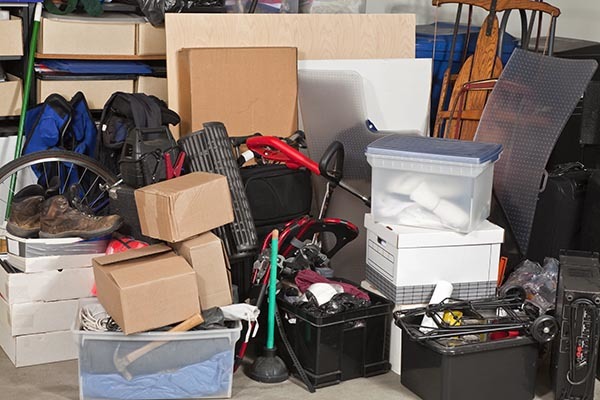What you can and can’t store in a storage unit

If you have a lot of clutter lying around, you might be tempted to store the majority of your belongings in a storage unit. Before you decide to pack things away, however, there are a few rules about what you can and can’t store in a storage unit.
To make sure you don’t accidentally break any rules, keep reading this short guide and learn about the rules regarding storage safety standards.
Legal requirements and recent rule changes
While in most cases, violating the terms of the self-storage unit will result in your lease being terminated and your insurance being voided, you may face legal action. That’s because prohibited items often put other customers and their belongings at risk, creating an unsafe environment.
Prohibited and restricted items
There are a range of items that aren’t allowed in self-storage units, like flammable materials, weapons, living creatures and more. To help you make sure you don’t accidentally store a prohibited item, we’ve included a comprehensive list below.
- Hazardous materials (including flammable liquids and explosives)
- Illegal goods (such as drugs and counterfeit items)
- Stolen property
- Weapons (such as guns, blades, or any other type of dangerous instrument)
- Living creatures (whether exotic animals, pets, or any other type)
- Medical or biological waste
- Radioactive materials
- Irreplaceable valuables
The main reason for the prohibition of these items is to do with safety, but storing valuable items can pose significant security risks.
What you can safely store
There are many different items you’re allowed to store in a self-storage unit, although common options include furniture, household goods, and clothing. Most people typically use self-storage to give them breathing room when moving home, decluttering, or just to free up space. No matter the reason you need to use self-storage units in Eastleigh or the surrounding areas, make sure you use them effectively to protect your belongings.
You may also be interested in Tacoma self storage options that offer storage insurance, as this can provide financial protection if your items are lost, damaged, or stolen. Additionally, we encourage you to pack and organise your belongings with care. Not only does this make it easier to find specific items when you need them, but it also helps reduce the risk of theft and damage.
Food, perishables, and specialist advice
While many foods are prohibited due to their perishable nature, non-perishable foods can occasionally be allowed. That means products like tinned foods or dried items might be allowed, but we urge you to contact your self-storage unit. Each company may have slightly different guidelines on what they will and won’t allow, so it’s best to get confirmation first.
If you are allowed to store food, you should make a considerable effort to adhere to safe storage practices, like storing the food in sealed containers and regularly checking for pests. Failing to take these precautions can create a dangerous environment for you, other self-storage users, and the wider business.


